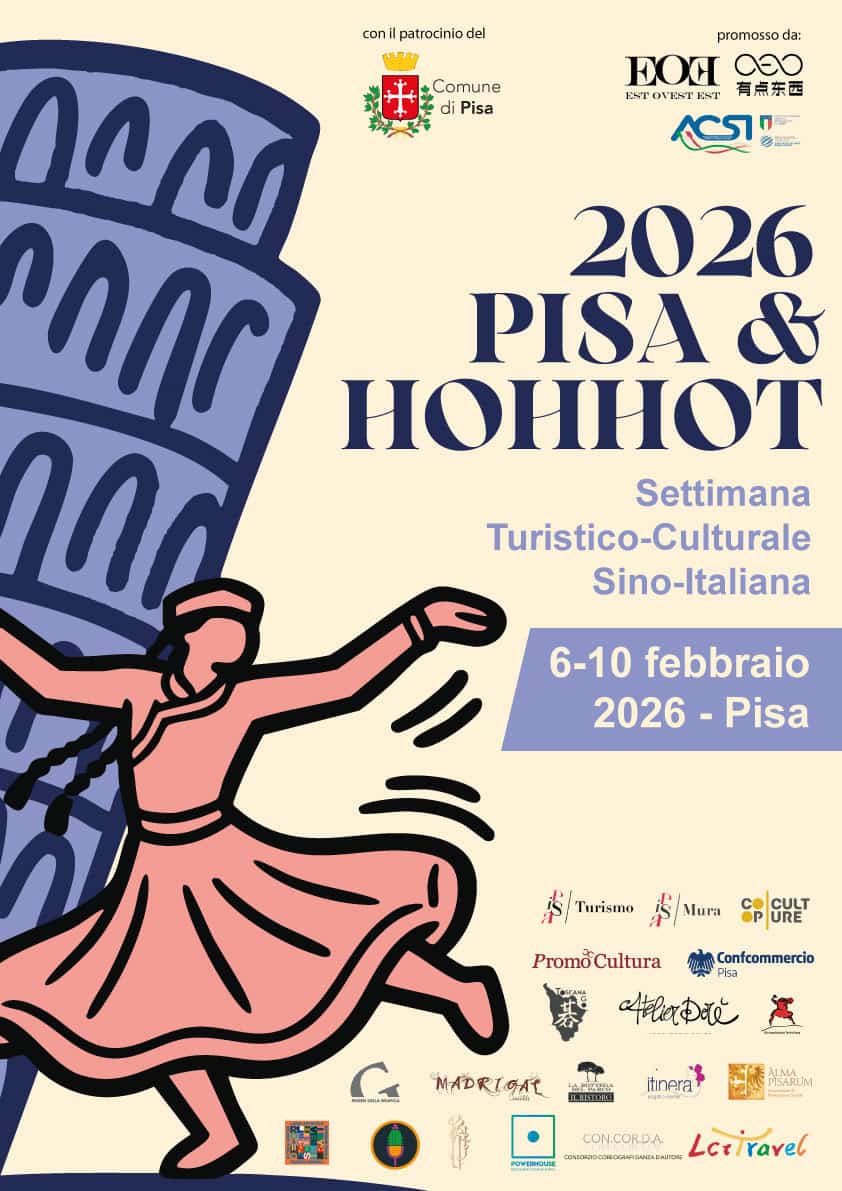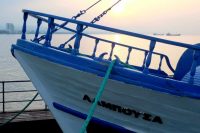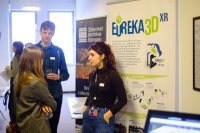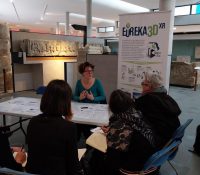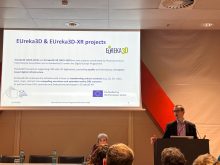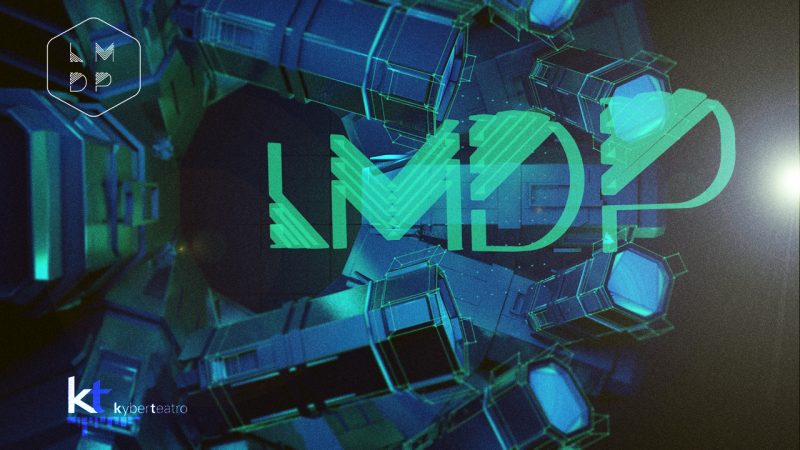
Between November and December 2021, Kyber Theatre organises in Cagliari (Italy) the 8th Edition of the International Theatre, Art and New Technologies Festival called “The Wonders of Possible” – Le Meraviglie Del Possibile, LMDP.
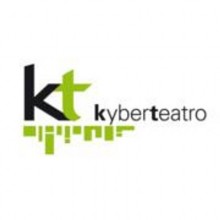 LMDP Festival is the first of this kind in the whole Italy. Its aim is to promote the interrelation between artistic and technological languages.
LMDP Festival is the first of this kind in the whole Italy. Its aim is to promote the interrelation between artistic and technological languages.
Kyber Teatro – spin off of L’ Aquilone di Viviana (theatre and new technologies company, LMDP Festival organizer), addresses to Italian and International artists, also emerging companies and/or under 35 artists, an Open Call to submit their projects about “Interaction between arts and technology”.
Who can attend
The participation is open to:
- Artists and Companies of every nationality
- Also emerging companies and under 35 artists
- to who works individually or in a group of maximum 3
Eligible projects
- Theatre and new technologies plays
- Art and new technologies performances
- Installations that explore and realize the interaction between artwork, exhibition space and observers with the contribution of technology.
Application Deadline the 1st of JULY 2021.
The theme of LMDP Festival is the interrelation between theatre, arts and new technologies.
The application must contain:
- Artist’s CV;
- Detailed description of the project (in PDF);
- Technical rider;
- Selection of max 5 photos;
- Link audio / video material (Vimeo or Youtube).
Application materials must be sent by the 1st of JULY 2021, to the mail: info@kyberteatro.it
The result is going to be notified only to selected projects by the Month of SEPTEMBER 2021.
Economic conditions:
The winners of the Open Call will have guaranteed the full coverage of the costs for mobility (travels to Cagliari, board and accommodation); coverage of agility costs and the “attendance fee” for the presentation of their performance for 2 evenings. If possible, we will cover also any material required for the presentation of the performance / show / installation (it will be subject to agreements with our technical director).
The winners, if interested, can present a technological artistic workshop with an entrance ticket for the audience.
Publication:
Applying for the call, the artists must provide a short biography and an abstract of the project and they agree that the material related to the project could be published on the Festival website and/or presented to the press for promotional purposes.
Archiving process:
Artists authorise Kyber Teatro – L’aquilone di Viviana to present their work, to store the material and make it accessible through the Festival’s website. All rights to the artwork and images will remain to the artist. The Organization is also entitled to document the event in all its phases through audio recordings, video or images.
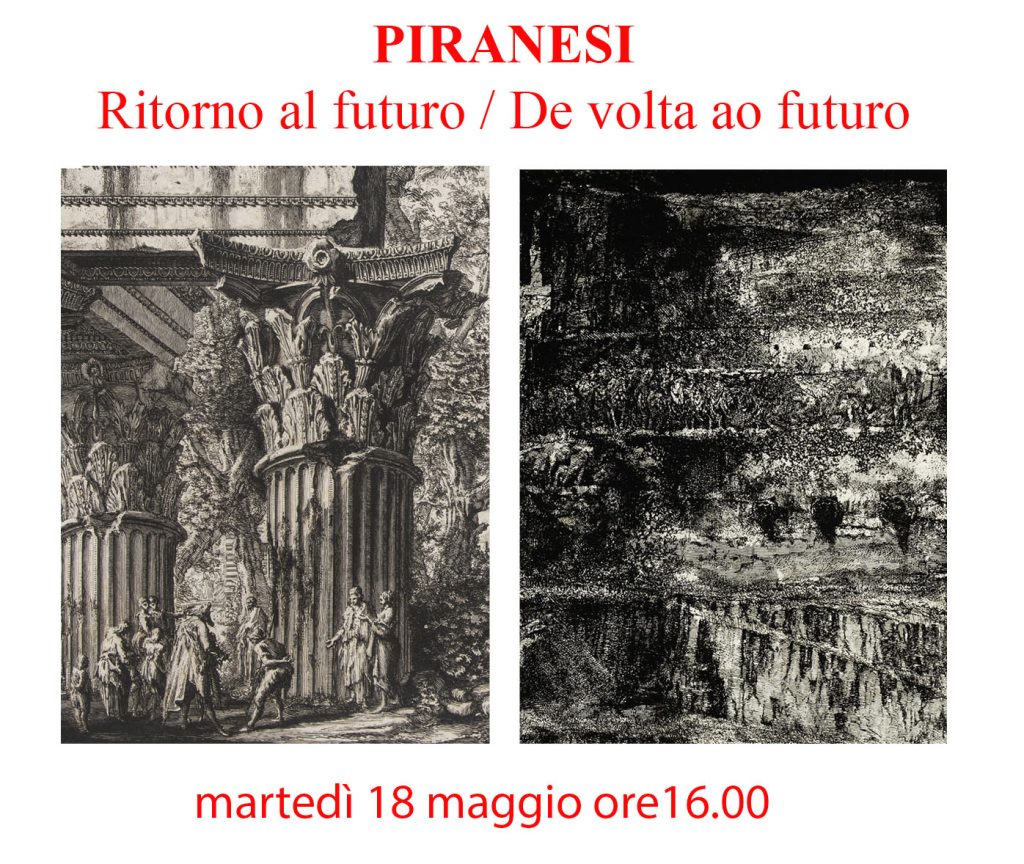


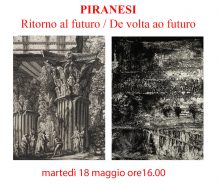
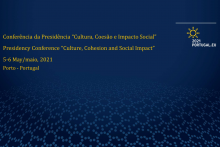
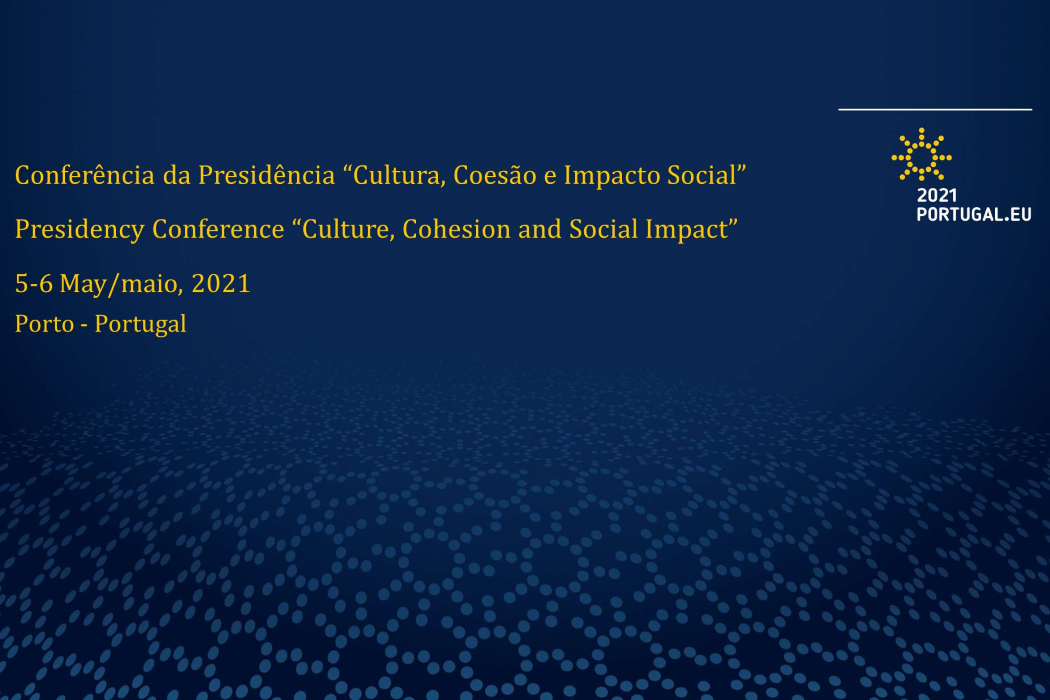 On May 5-6, 2021, in the framework of the Portuguese Presidency of the European Union Council, was held a high level Conference on the topic of Culture, education and youth, Employment and social rights. The two-day event was structured in a plenary session facing “The Social Impact of Culture” and in four principal panels:
On May 5-6, 2021, in the framework of the Portuguese Presidency of the European Union Council, was held a high level Conference on the topic of Culture, education and youth, Employment and social rights. The two-day event was structured in a plenary session facing “The Social Impact of Culture” and in four principal panels: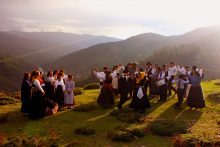
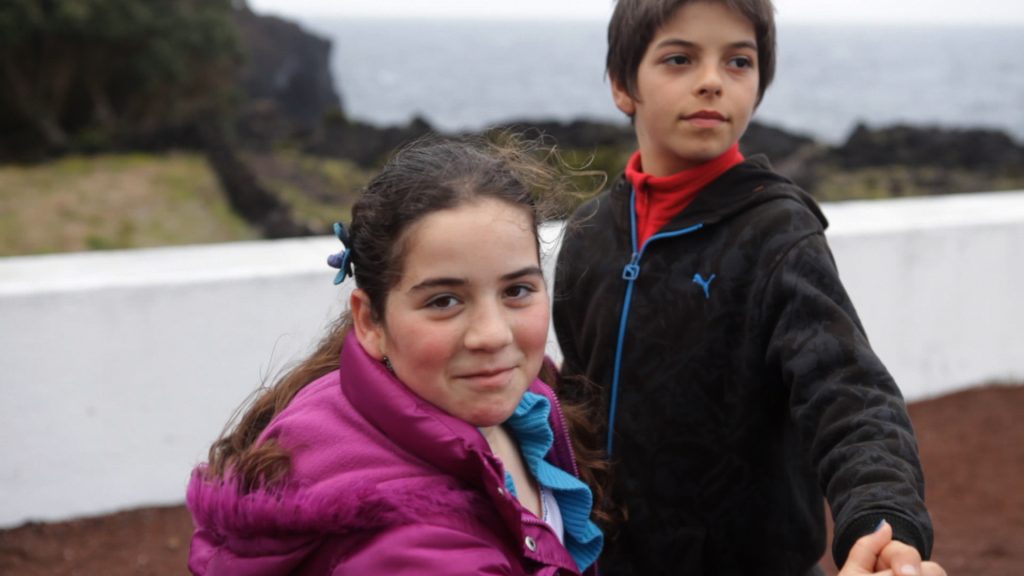
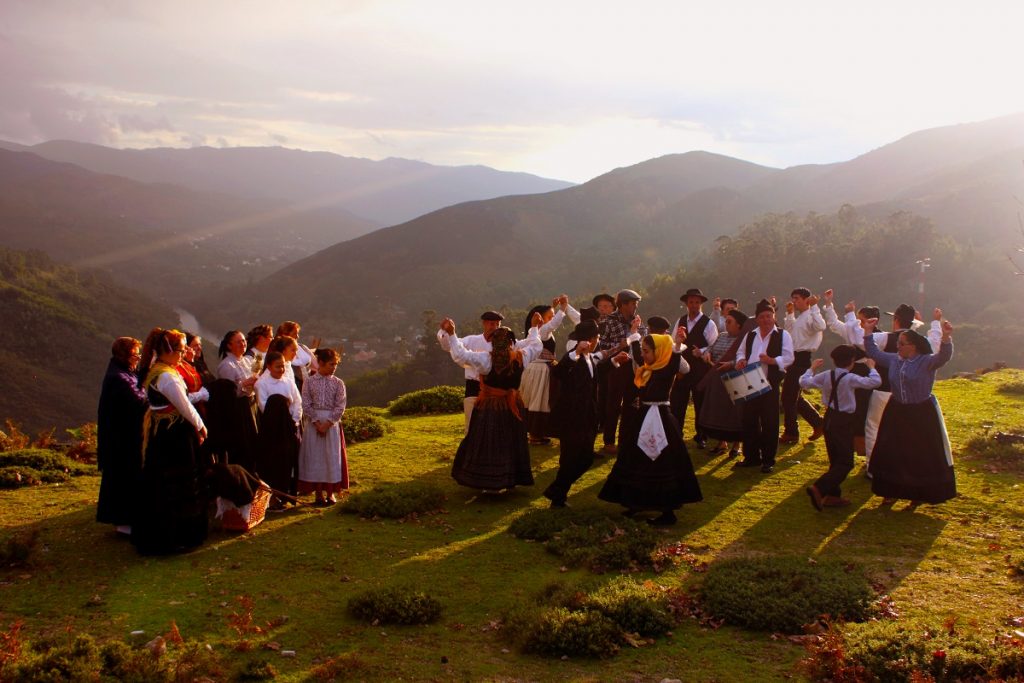

 The 2nd
The 2nd 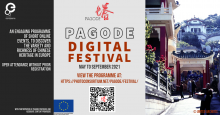
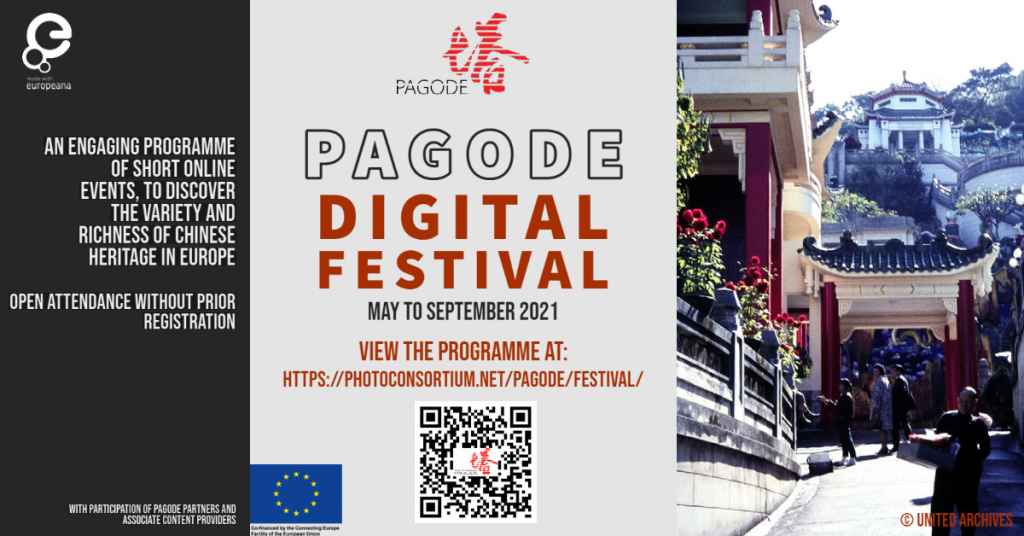
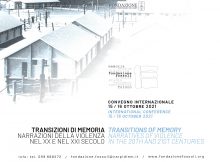
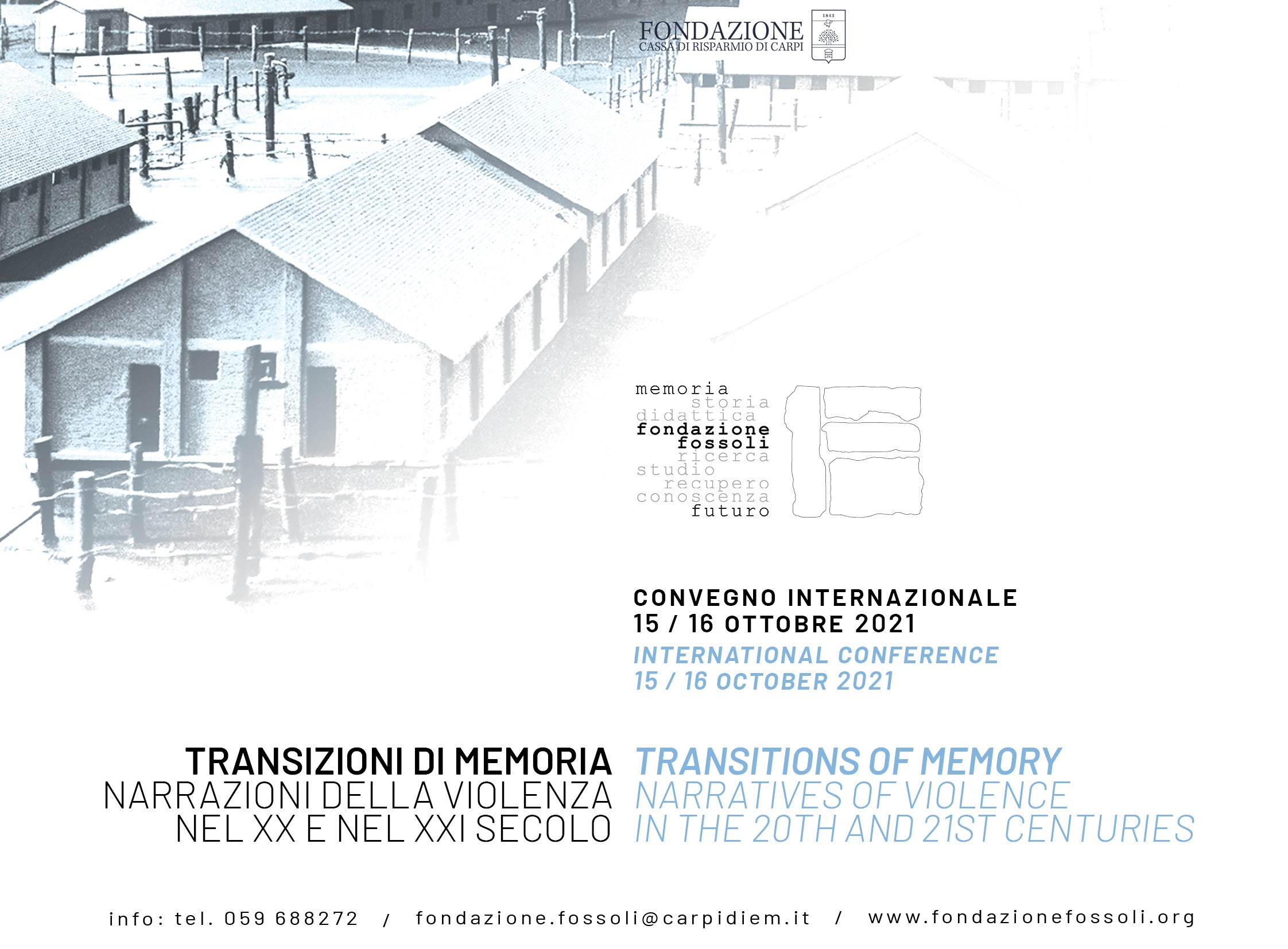 Fondazione Fossoli promotes the International Conference titled “Transitions of Memory. Narratives of Violence in the 20th and 21th Centuries” planned for October 2021.
Fondazione Fossoli promotes the International Conference titled “Transitions of Memory. Narratives of Violence in the 20th and 21th Centuries” planned for October 2021.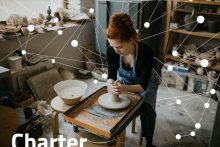
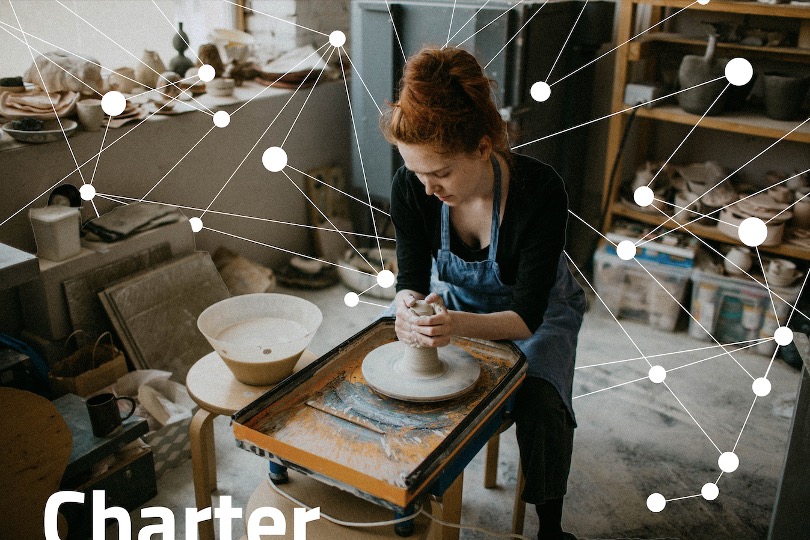 The 29th April marked the official launch of a new European cross-border project: the European Cultural Heritage Skills Alliance CHARTER brings together the expertise of 47 European cultural heritage organisations to ensure a long-lasting and durable sector. Over four years, the Erasmus+ funded project will professionalise the sector and further demonstrate its contribution to sustainable and thriving societies and economies. CHARTER’s consortium is composed of 28 full and affiliate members, which represents some of the top European cultural heritage actors. All partners cover the 5 fields of analysis: safeguarding and preservation; crafts and traditional knowledge; dissemination and communication; knowledge; planning and management.
The 29th April marked the official launch of a new European cross-border project: the European Cultural Heritage Skills Alliance CHARTER brings together the expertise of 47 European cultural heritage organisations to ensure a long-lasting and durable sector. Over four years, the Erasmus+ funded project will professionalise the sector and further demonstrate its contribution to sustainable and thriving societies and economies. CHARTER’s consortium is composed of 28 full and affiliate members, which represents some of the top European cultural heritage actors. All partners cover the 5 fields of analysis: safeguarding and preservation; crafts and traditional knowledge; dissemination and communication; knowledge; planning and management.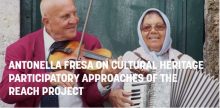
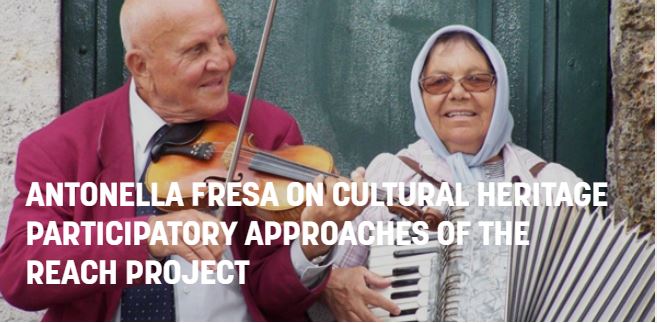 On April 12 2021, Antonella Fresa, REACH Network Coordinator, was invited to share the experiences and results of the social platform in the framework of the European Youth Ambassador Programme, a joint initiative by the
On April 12 2021, Antonella Fresa, REACH Network Coordinator, was invited to share the experiences and results of the social platform in the framework of the European Youth Ambassador Programme, a joint initiative by the 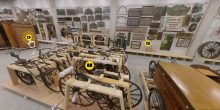
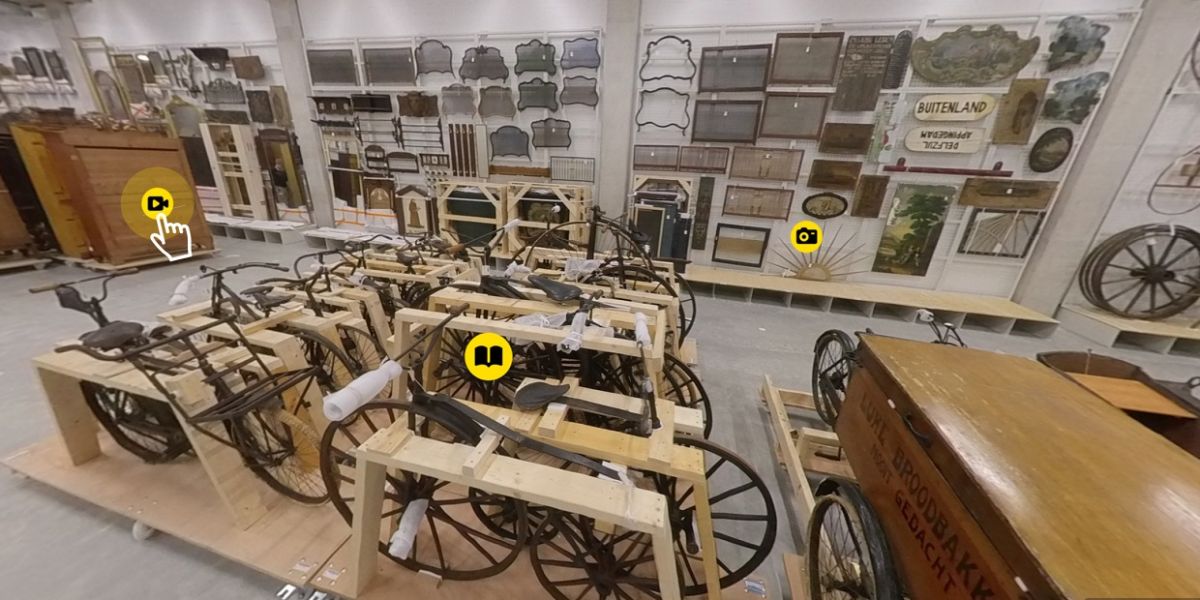 This meeting is related to Digital cultural heritage and social change.
This meeting is related to Digital cultural heritage and social change.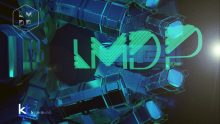

 LMDP Festival is the first of this kind in the whole Italy. Its aim is to promote the interrelation between artistic and technological languages.
LMDP Festival is the first of this kind in the whole Italy. Its aim is to promote the interrelation between artistic and technological languages.

